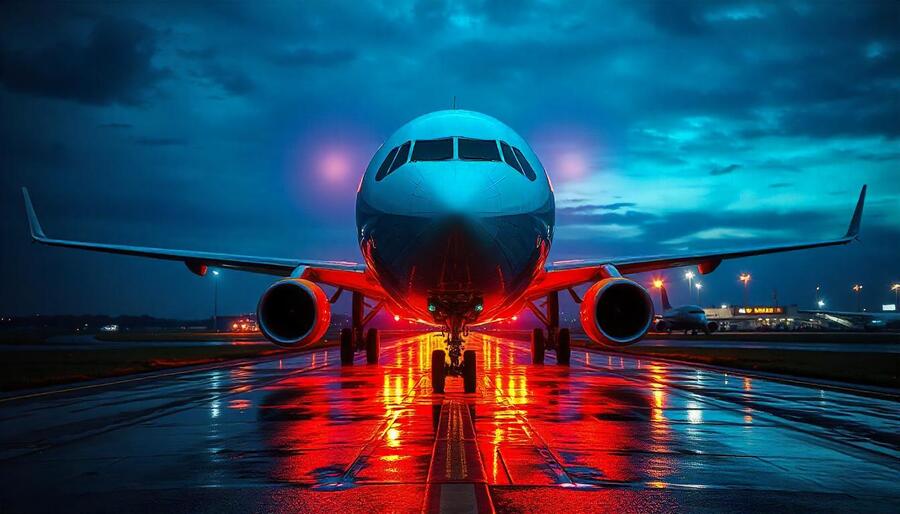Wednesday November 27, 2024

A Senate Subcommittee Report has revealed how major US airlines, including United Airlines, Delta Air Lines, American Airlines, Spirit Airlines and Frontier Airlines, are profiting from “junk fees”. These fees, which range from baggage fees to seat selection costs, collectively contributed $12 billion to their revenue. The report highlights how these fees have evolved from optional extras to a cornerstone of airline profitability.
Baggage policies and staff incentives
The subcommittee's findings reveal that airlines have implemented aggressive strategies to enforce baggage fees. Frontier and Spirit, in particular, encouraged their employees to identify passengers who were trying to avoid paying for carry-on or checked bags. Together, these low-cost carriers have spent $26 million to reward staff for ensuring compliance with their strict baggage policies. This tactic not only increased revenue, but also highlighted the lengths to which airlines went to obtain every possible fee.
Seat selection: a $12 billion windfall
A significant portion of profits came from seat selection fees, particularly for extra legroom options. Overall, airlines have made seat selection a major source of revenue, capitalizing on passengers' desire for comfort and convenience. Here is how the numbers break down:
- United Airlines (UA) leads the pack, charging up $319 for premium seats with more legroom.
- Delta Airlines (DL) follows closely, with maximum fees of $264 for similar upgrades.
- American Airlines (AA) caps its extra legroom charges at $140offering a more moderate pricing structure compared to its competitors.
- Even low-cost carriers benefit: Spirit Airlines (NK) fresh up to $299while Border Airlines (F9) peaks at $141 for seats with more legroom.
This practice has become so widespread that even international carriers, such as British Airways, charge passengers for economy class seat reservations and, in some cases, even business class seats.
Fees transform the travel experience
These additional fees represent a fundamental change in the way airlines structure their fares. Once included in the price of a ticket, many services are now monetized separately, transforming air travel into a pay-as-you-go model. Passengers are often forced to choose between having a less comfortable experience or paying extra for amenities they once took for granted.
Seat selection fees, in particular, have become a consistent source of revenue for airlines, due to passengers' growing preference for pre-booking their preferred seats. The $12 billion in revenue shows how lucrative this trend has become, even for low-cost airlines like Spirit and Frontier, whose business models rely heavily on these add-ons.
Shifting political winds: what it means for travelers
As the Biden administration, known for its consumer-friendly policies, comes to an end, the aviation industry is anticipating a change under the new Donald Trump administration. Airlines benefited significantly during Trump's previous term, from 2016 to 2020, when government oversight of fees and prices was minimal.
Delta CEO Ed Bastian has openly welcomed Trump's return, and many other airline executives likely share his optimism. If history is to be believed, airlines can expect fewer regulatory hurdles, which will give them greater freedom to raise fees for services such as baggage and seat selection.
For passengers, this could result in additional costs on top of an already high-cost travel landscape. While the Ministry of Transport previously sought to introduce measures aimed at transparency and consumer protection, these efforts could now take a back seat, leaving airlines freer to implement and expand their pricing structures.
What's next for passengers?
The report serves as a wake-up call for travelers to anticipate even more additional fees in the future. As airlines double their fees for unwanted waste as a primary source of revenue, passengers will need to navigate this system with caution. Simple strategies like pre-planning your baggage and understanding fare structures can help mitigate the financial impact.
With airlines like United, Delta, American, Spirit and Frontier at the forefront of this $12 billion junk fee industry, the trend shows no signs of slowing down. As government policies evolve, travelers need to prepare for a paid future and stay informed about the costs associated with their travels.
Final Conclusion
The revelation that major airlines are profiting billions of dollars from fees for services such as seat selection and baggage highlights a broader trend in the aviation industry. With easing regulations on the horizon, these fees are likely to increase, making it more important than ever for passengers to stay informed and plan ahead. As airlines celebrate their windfall, travelers find themselves saddled with a system designed to extract as much revenue as possible from each trip.



